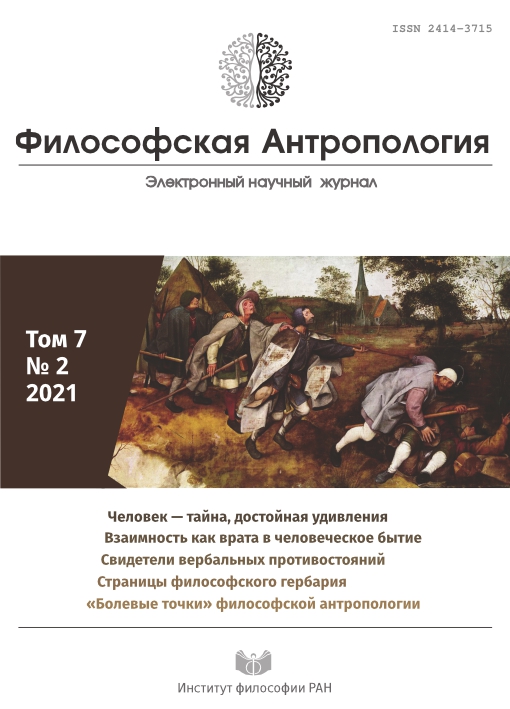Anthropocentrism between Depression and Psychosis: Autonomy of Affect
DOI:
https://doi.org/10.21146/2414-3715-2021-7-2-171-178Keywords:
anthropocentrism, future, subjectivity, individual, structure, affect, depression, psychosis, representation, natureAbstract
The purpose of this article is to problematize the theme of the individual psychoemotional health of a modern person and indicate an alternative interpretation of affect. This problem is investigated not from the point of view of the individual's autonomy, but from a trans-individual perspective, in which modern depression is associated not with the problems of an individual suffering subject, but with the sociocultural situation that produces this subject. The recursiveness of the individual and society ultimately has a structural-semiotic character, mediated by representation. It is suggested that it is the affect that can serve to open up alternative ways in understanding subjective life and building new cultural practices.

